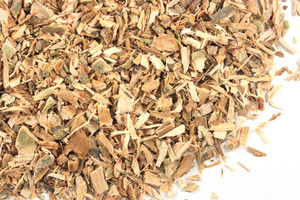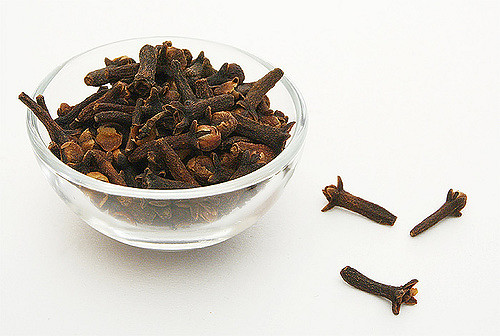Inflammation is a natural response from your body after you sustain an injury or get an infection. It may result in localized swelling, redness, and heat. There may even be a loss of function of the involved tissues. Acute inflammation is usually your body's way to heal itself and restore normal tissue function. Sometimes, acute inflammation persists for a long time, resulting in chronic inflammation, which usually is the outcome of an allergy, autoimmune reaction, or infection. Whatever the case, you can try different remedies including herbsto make yourself feel better.
Herbs for Inflammation
A number of different herbs work amazingly well to clear infections and reduce inflammation in the body. Here are some nice options for you to consider.

1. Turmeric
It contains a yellow pigment called curcumin, which gives turmeric its anti-inflammatory properties. It has been an important part of Chinese and Ayurvedic medicines for ages and used specifically to reduce inflammation and treat wounds, digestive disorders, and infections.
How to use: You can use it in soups, curries, and other dishes, or have it in fresh vegetable juices to reduce inflammation. Supplements of curcumin may prove equally effective.
2. Green Tea
Green tea has antioxidants and other nutrients that play an important role in preventing cardiovascular disease. Its anti-inflammatory properties make it a great choice for patients with arthritis. It also reduces inflammation of the digestive tract and prevents conditions such as ulcerative colitis or Crohn's disease.
How to use: Drink 3-4 cups of green tea a day to enjoy amazing benefit. You can also find green tea pills.
 3. White Willow Bark
3. White Willow Bark
It is among the best herbs for inflammation because it not only reduces inflammation in the body but alleviates pain as well. Its pain-relieving properties are somewhat similar to the effect of aspirin.
How to use: You need to take 240mg of this herb to treat your ongoing conditions.
4. Chili Peppers
You can find countless varieties of hot peppers all of which contain the chemical called capsaicin, which produces anti-inflammation effect in your body.
How to use: You can eat any type of chili pepper, such as jalapeno and cayenne. Just make sure it contains capsaicin. There are supplements available with capsaicin that you can take to reduce inflammation in the body.
 5. Cloves
5. Cloves
Many people have used cloves to treat throat and mouth inflammation and found it quite effective. Along with taking this herb for inflammation,you can also trust it treat nausea, diarrhea, and bad breath.
How to use: You can take clove oil and apply it directly to the gums to treat mouth and throat inflammation or toothache. You can also use dried flower buds in savory dishes and hot drinks to get its benefits.
 6. Cinnamon
6. Cinnamon
Made from the bark of cinnamon trees, this herb has anti-inflammatory, antioxidant, anticancer, antimicrobial, anti-diabetic, and lipid-lowering properties. It even works against certain neurological disorders such as Alzheimer's and Parkinson's diseases.
How to use: You can include cinnamon in anything from soups, to desserts, breakfast grains, and drinks. Any premade pumpkin pie or apple pie spice mixes may already have cloves, cinnamon, and ginger.
 7. Garlic
7. Garlic
You can liven up any dish with fresh garlic and enjoy several health benefits as well. It is an effective herb for inflammationand works extremely well against rheumatoid arthritis pain. It works by inhibiting the production of cytokines, which produce inflammation in your body.
How to use: You can add garlic to a variety of foods including stir-fries, roasted vegetables, and sandwich spreads. For a change, make roasted garlic dressing and serve it over greens.
8. Black Pepper
Peppers contain capsaicin that helps reduce swelling in the body and works great for arthritis treatment.
How to use: Include it in your diet or look for creams that include capsaicin to treat arthritis.
 9. Mustard
9. Mustard
Made from the seeds of a plant in the cabbage family, mustard contains compounds that help prevent the growth of cancer cells. It has been an important ingredient in chest plasters because it packs heat to break up congestion. It can also deplete nerve cells of substance P and reduce pain sensations as a result. It increases the flow of digestive juices and saliva, thus improves your appetite.
How to use: Use a mustard compress if you have Raynaud's disease to improve flow of blood to your fingers. To deal with athlete's food fungus, add some mustard powder to water and soak your feet in it.
When Should Herbs Be Avoided?
You may have gathered the fact that you can find several herbs for inflammation, but you also need to bear in mind that herbs are not always recommended.
Avoid mixing herbs with drugs. If you are taking any medications already, certain herbs may interact with those medications and cause complications. For instance, ginkgo is a natural blood-thinning herb, so it is important that you do not use it with any anticoagulant drug. Similarly, the herb valerian has a sedative effect on your system, so you should avoid taking it when you are already taking prescription sleeping pills.
It is also a good idea to avoid taking any herbs when you are pregnant. Never take any herbs for inflammation during your first trimester and talk to your doctor before you try anything for the first time. Depending on your circumstances and health condition, your doctor may allow you to take up to 1000mg of ginger to treat morning sickness.
You can take alfalfa, fenugreek, blessed thistle and herbs that promote breast-milk production when nursing, but you should avoid other medicinal herbs at least until your baby is six months old. Also, do not automatically assume that any herbs that are safe for adults are also safe for children. Talk to your child's healthcare provider before trying any natural remedy.
